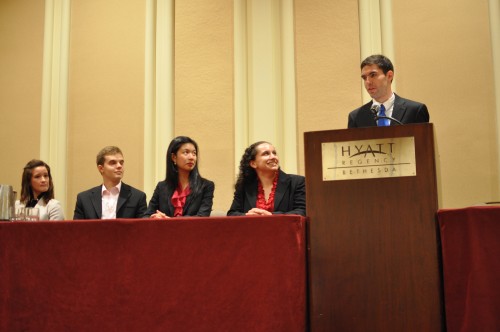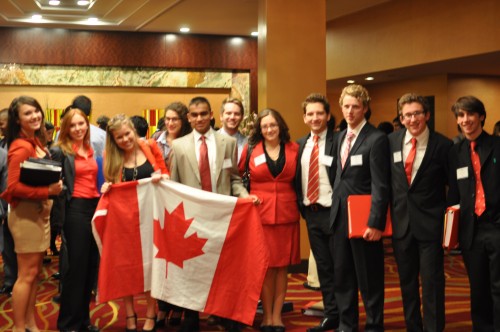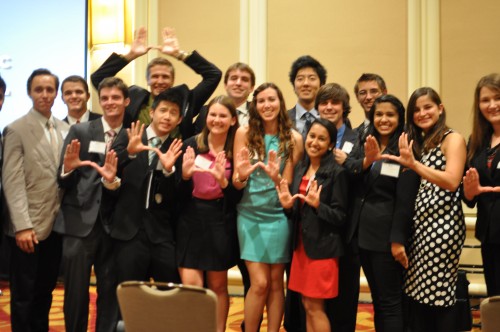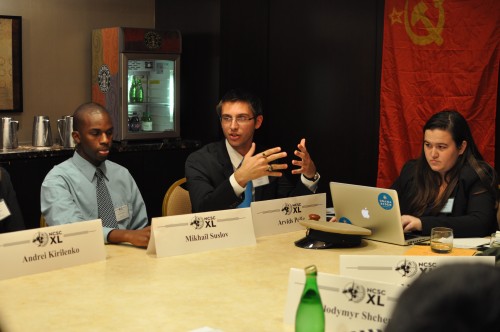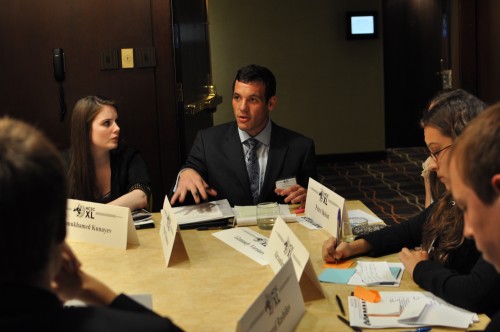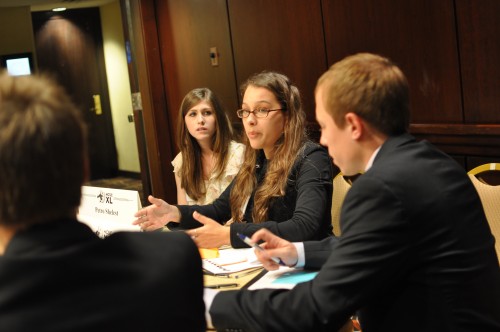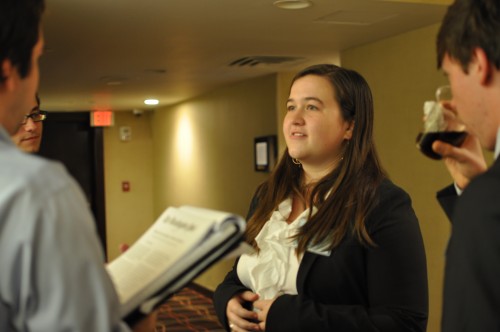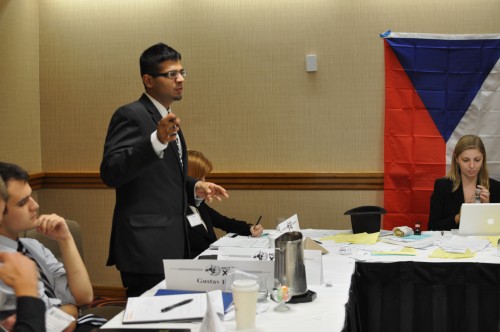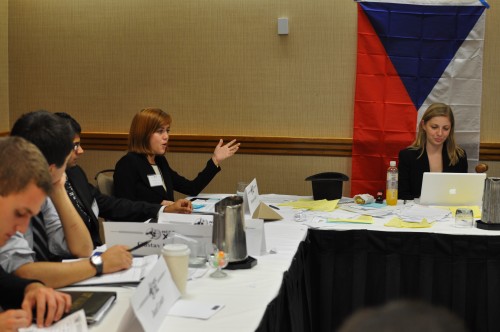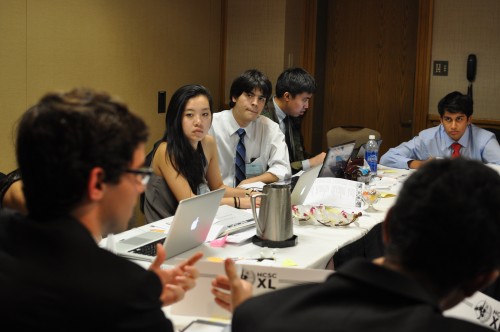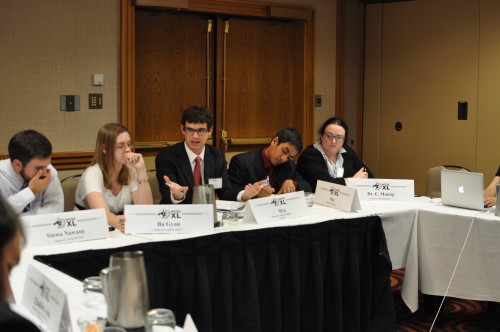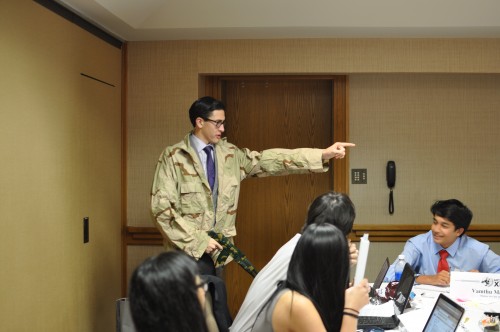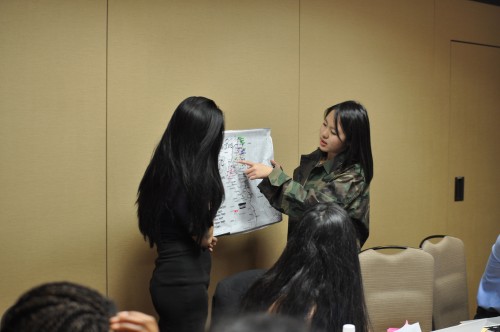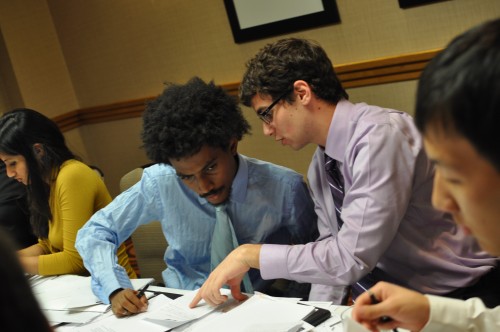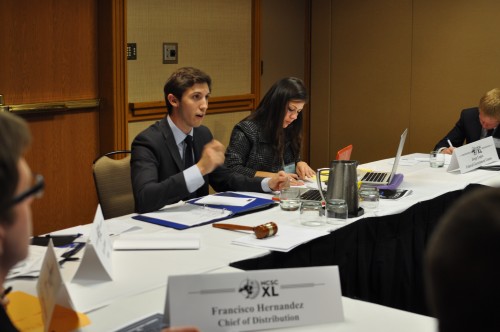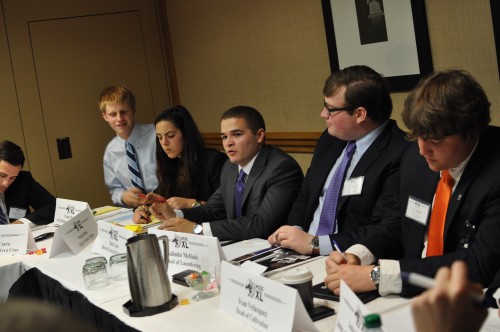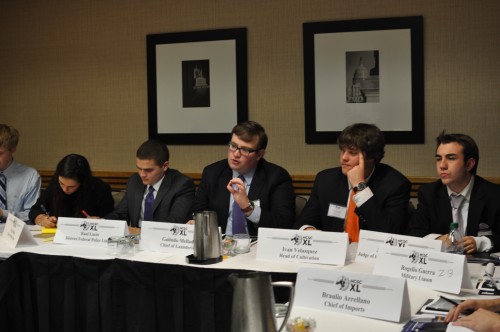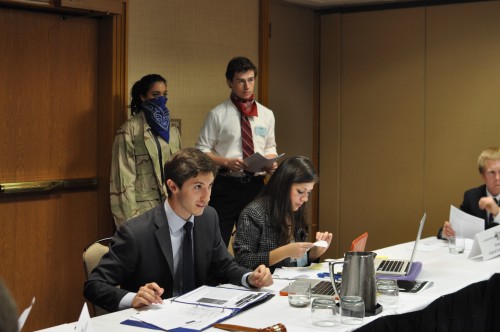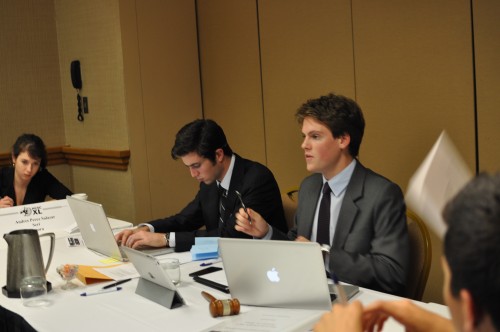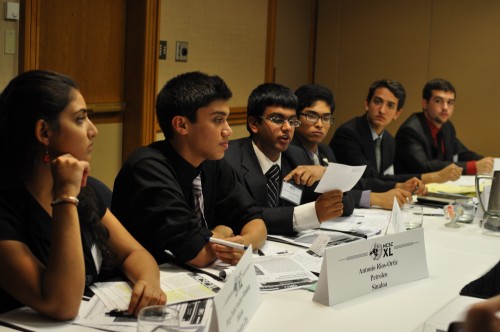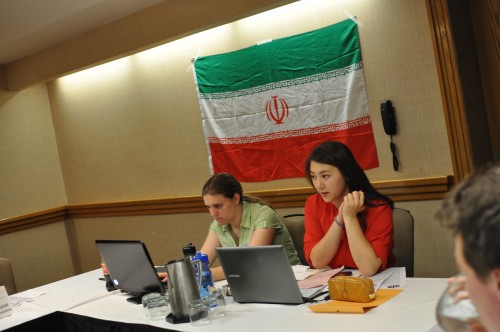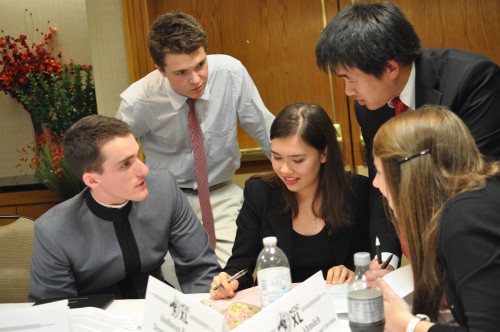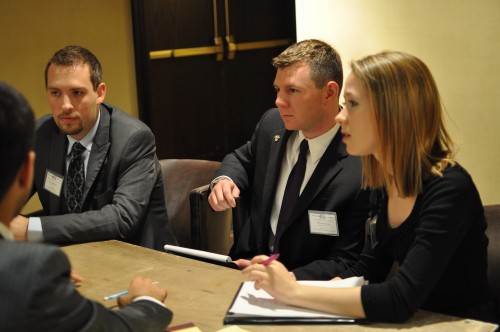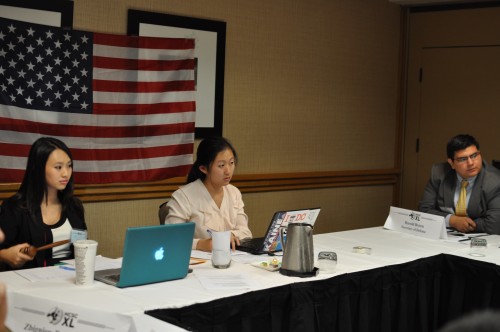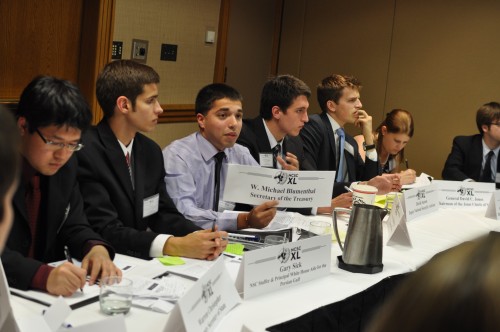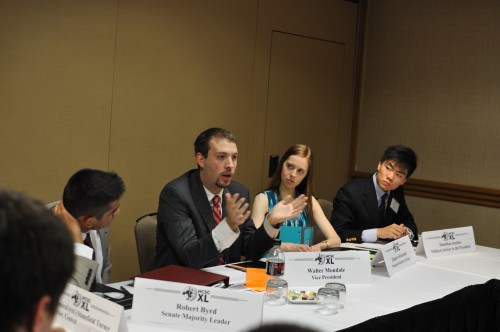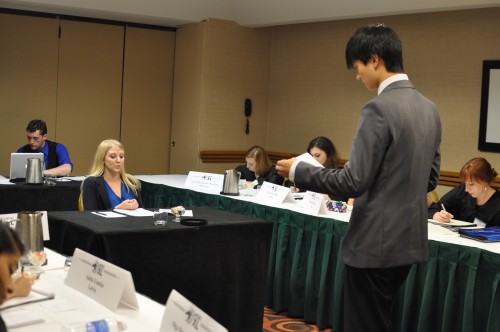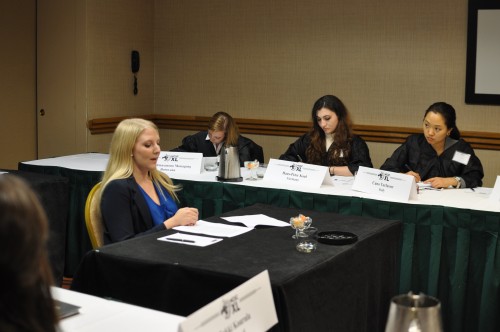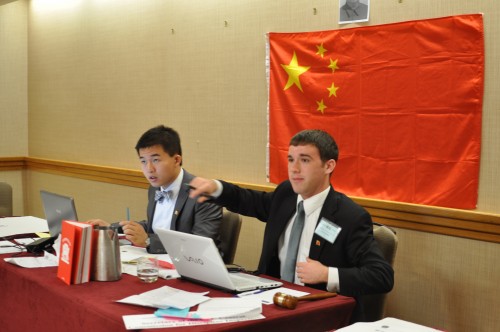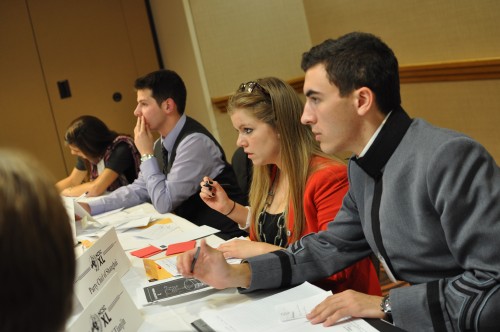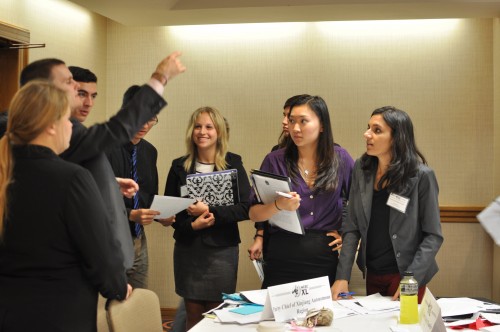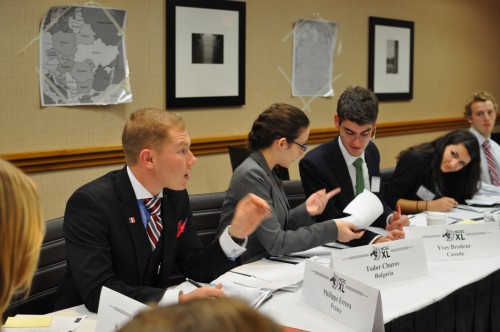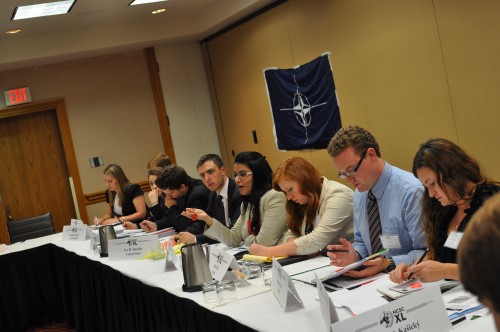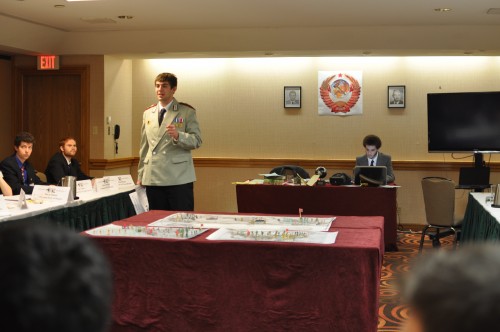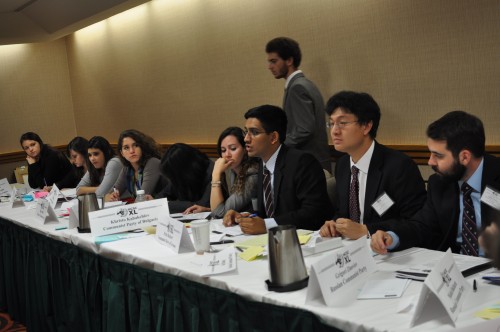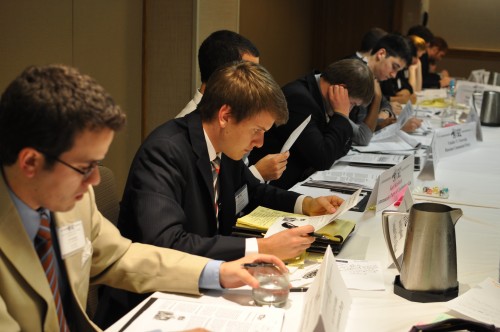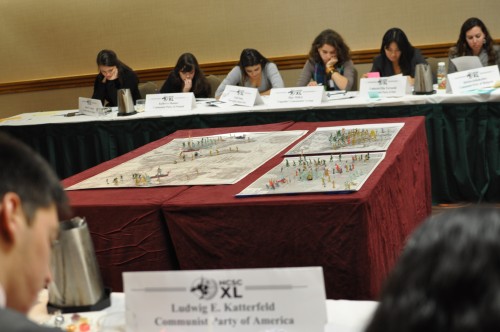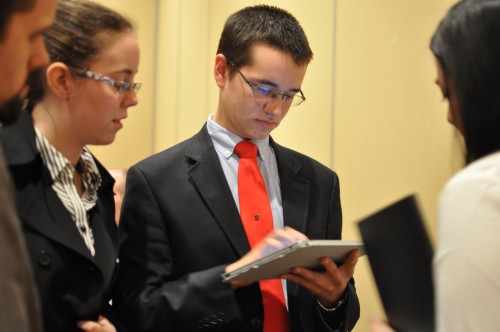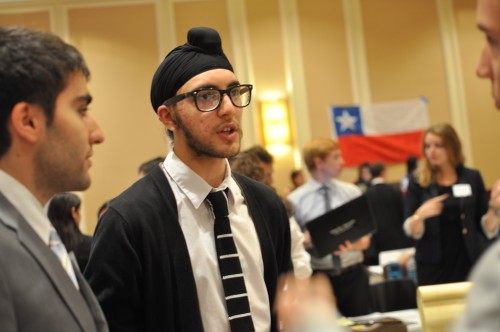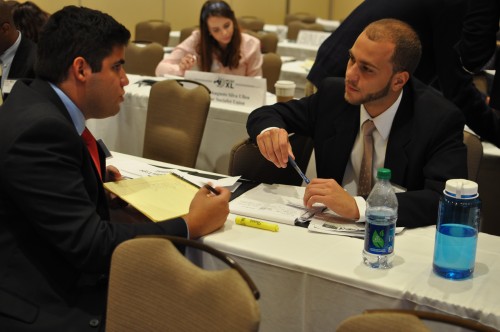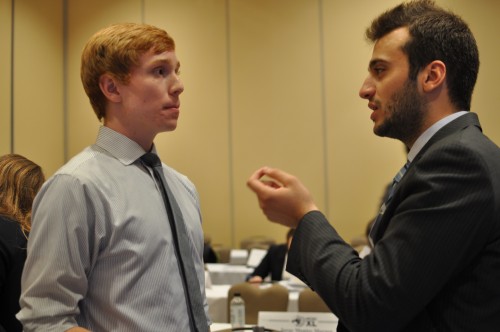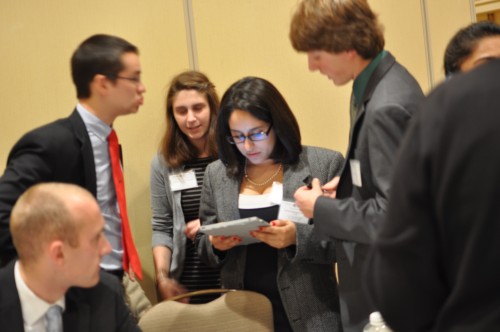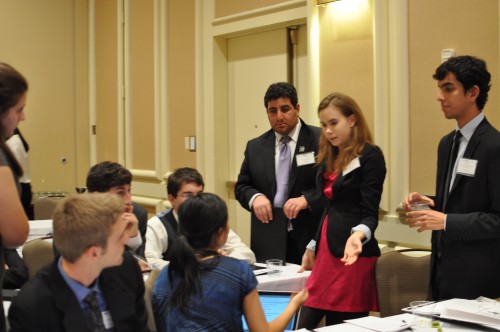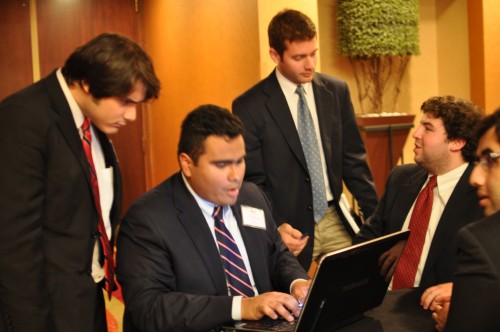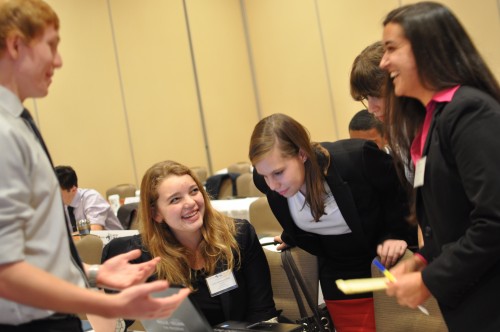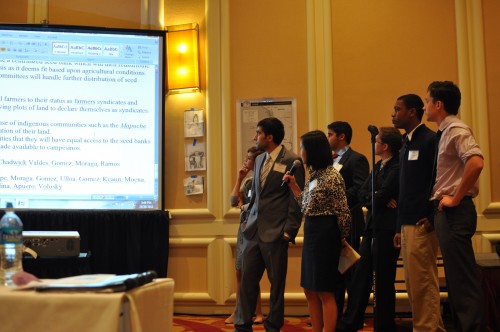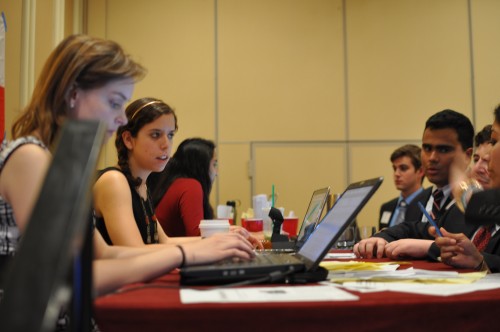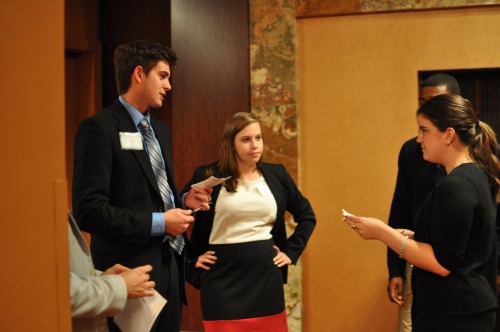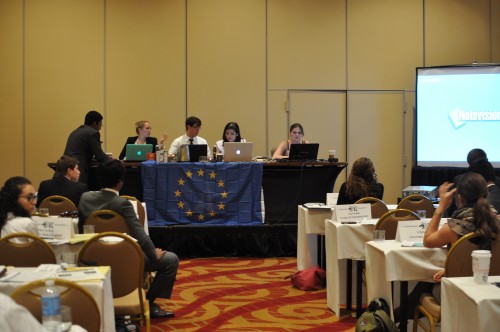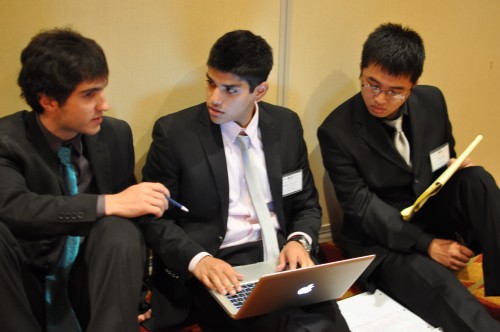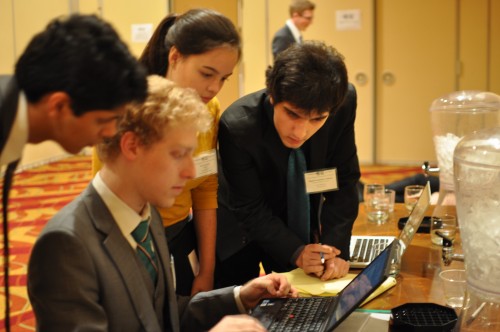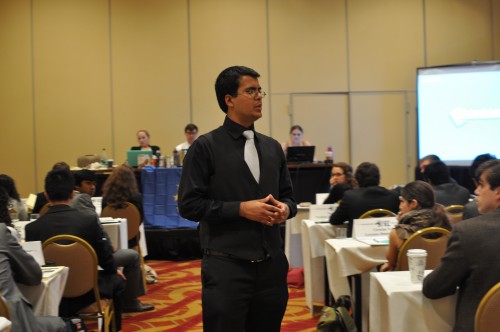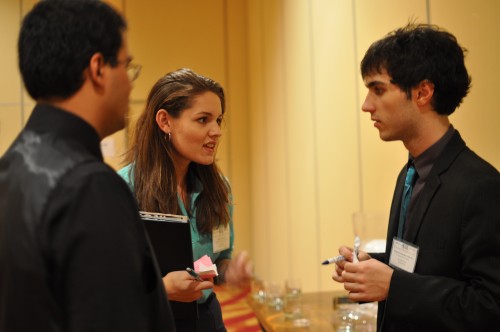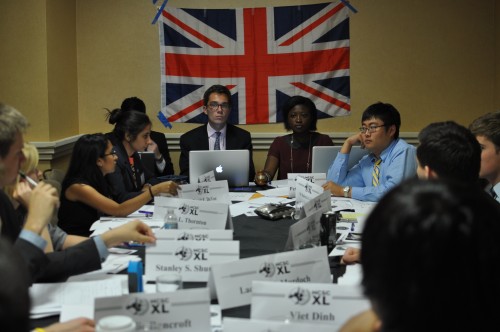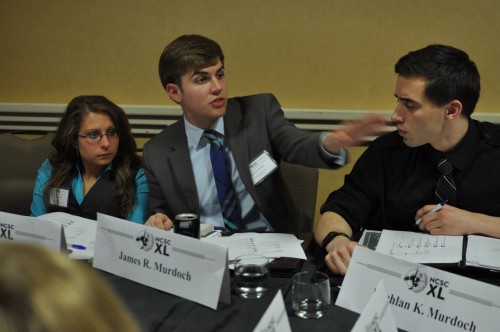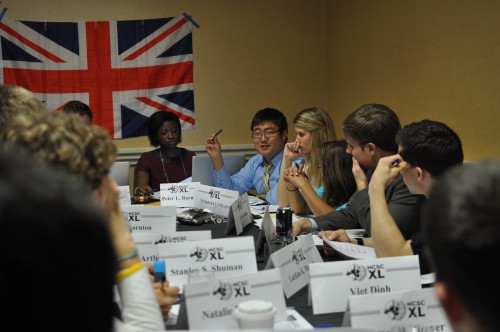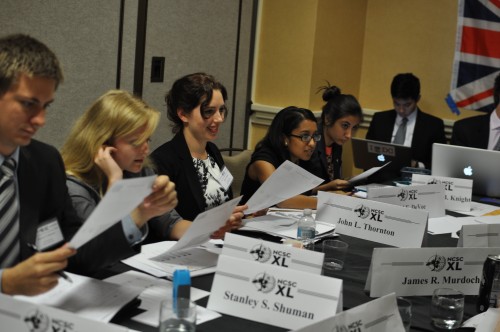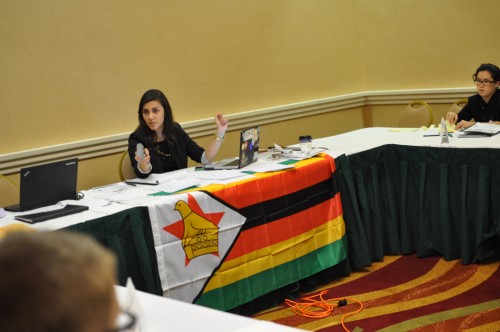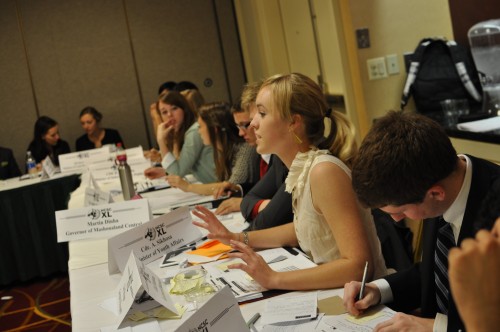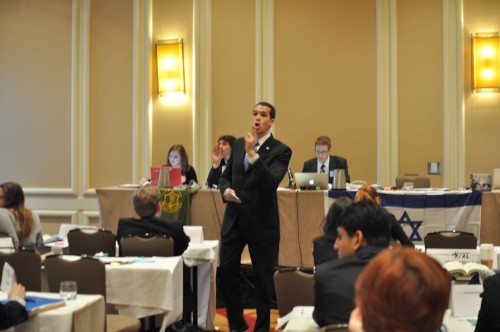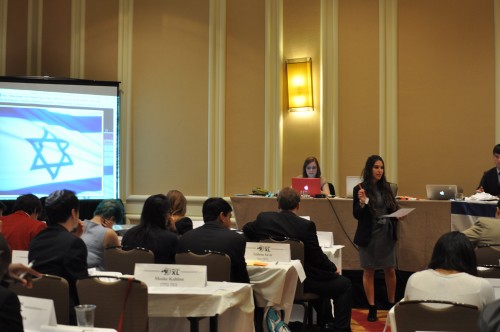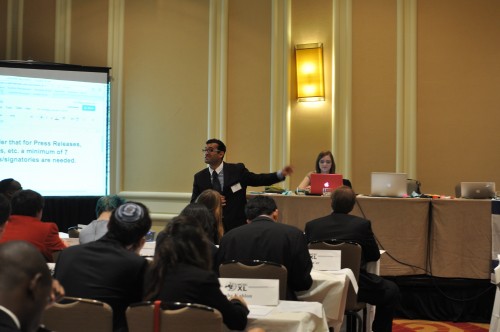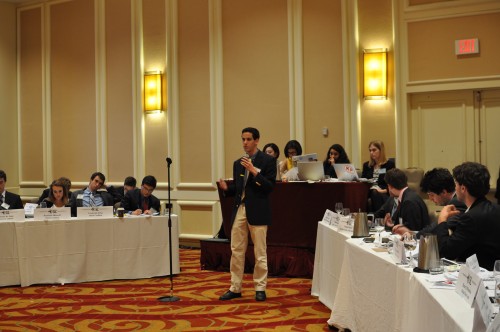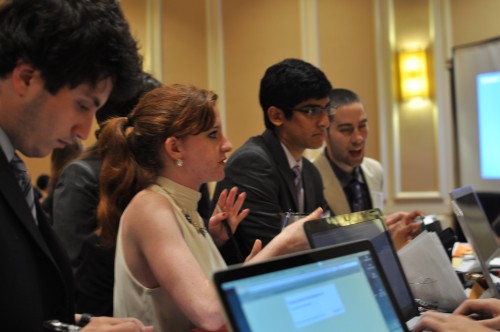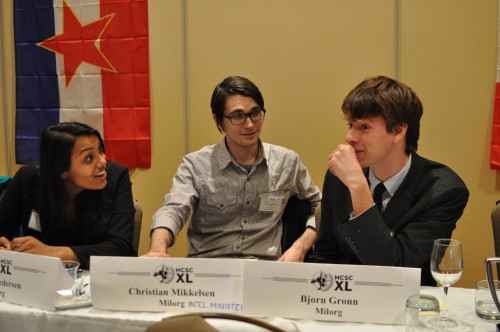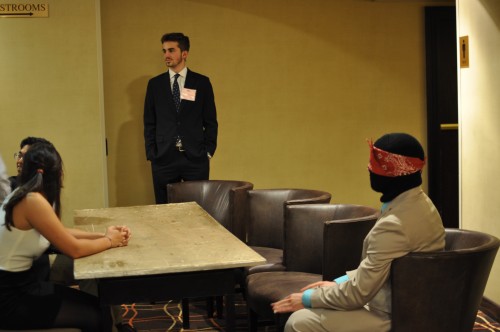As usual, here are photos of delegates and staff in action! You can find a lot more coverage plus videos at NCSC News: http://ncscnews.wordpress.com/
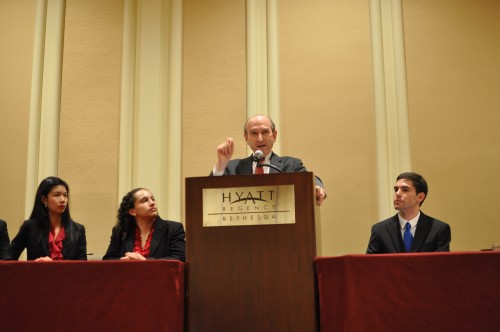
Elliot Abrams, Senior Fellow for Middle Eastern Studies at the Council on Foreign Relations, shared insights into the decision-making process from his personal experiences in international relations
NCSC ran three joint crises. One of them focused in Prague Spring 1968 where the Soviet Politburo and Czechoslovak Politburo had to make calculated decisions on how to interact with each other.
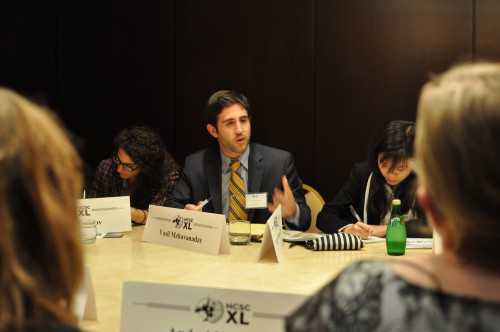
Vasil Mzhavanadeze (University of Pennsylvania) makes an argument to the rest of the Soviet Politburo 1968
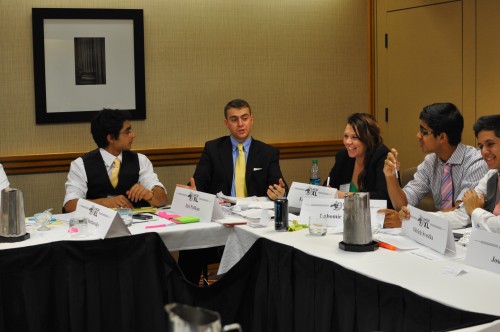
A delegate proposes creating an East Point Academy in order to develop better military relations with the Warsaw Pact
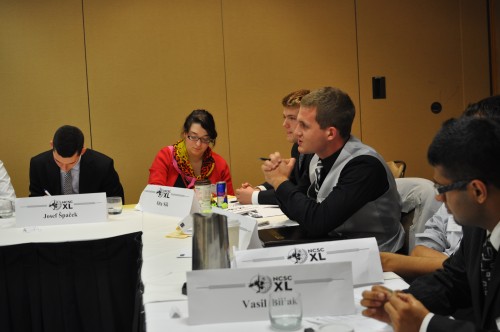
A delegate points out flaws and dangers with allowing Soviet troops to train at the proposed East Point Academy
The Burmese Cabinet focused on the key security and development issues that need to be addressed for an infant country.
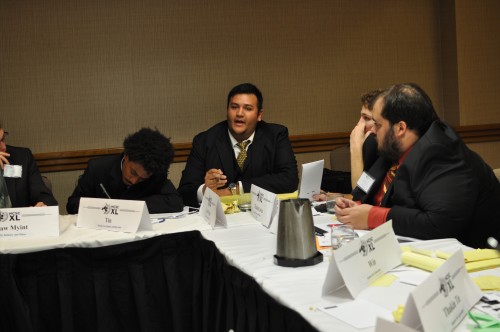
Kyaw Nyein (McGill University) presents a long directive on land redistribution policies in the 1948 Burmese Cabinet
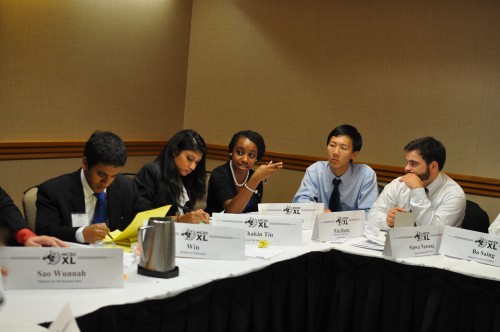
Than Aung (American University) disagrees with the proposed land redistribution policies in the Burmese Cabinet 1948
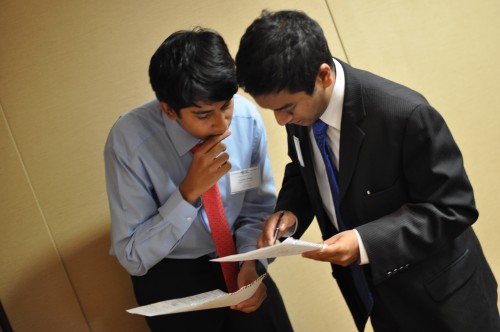
Vamthu Maung (St. Stephen’s College) and Win (University of Pennsylvania) negotiate some clauses on a directive
One of the joint crises focused on Mexican Cartels in 2014 – Sinaloas vs. Zetas. Drug trafficking was an issue that was repeatedly mentioned during our workshops in Latin America, so it’s important to do simulations so that we have a better understanding of the security issues surrounding it.
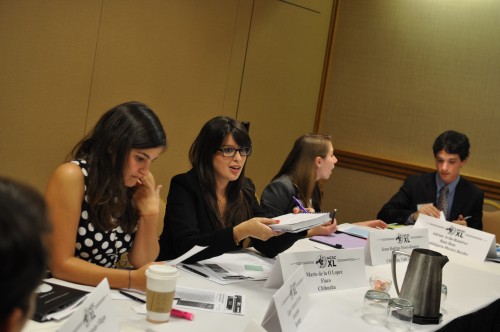
Mario de la Lopez (University of Pennsylvania) tries to convince a fellow cartel member to agree in the Sinaloas cartel
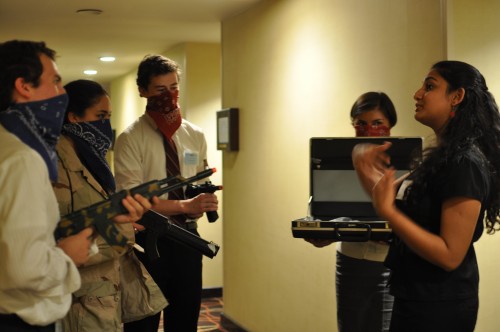
Diego Pablo Sanchez-Mendoza (Mount Holyoke College) successfully negotiated a way out of a bribe despite the pressure of many guns pointed at her.
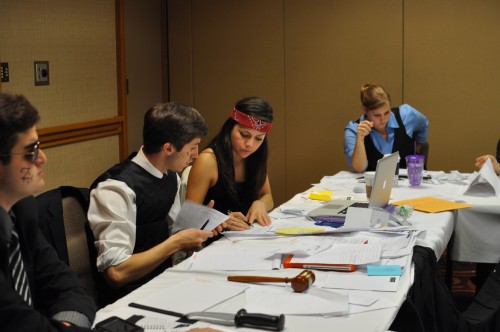
Delegates and chairs in the Zetas committee get increasingly dressed up with facial tattoos, sunglasses, bandanas, and weapons.
Another joint crisis focused on the 1979 crisis between the United States and Iran.
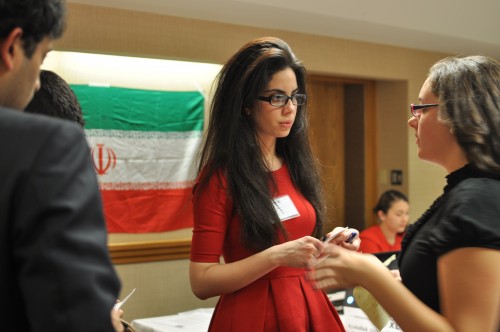
Ayatollah Akbar Hashemi Rafsanjani (Mount Holyoke College) debates with Ebrahim Yazdi (McGill University) during unmoderated caucus in the Iranian Council
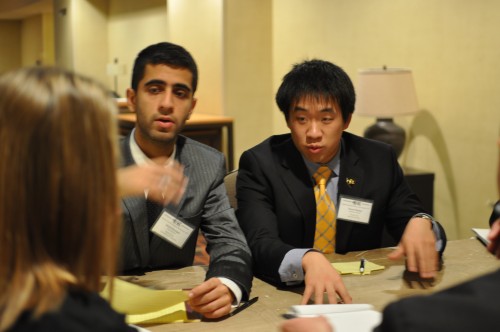
The negotiators for the Iranian Council, Mehdi Bazargan (University of Pennsylvania) and Ahmad Madani (Harvard University) were very aggressive and came back with terms that their own council thought was too good to be true.
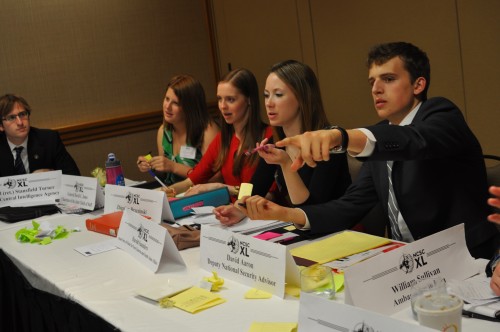
David Aaron (University of Pennsylvania) points out the order in which military action should be taken
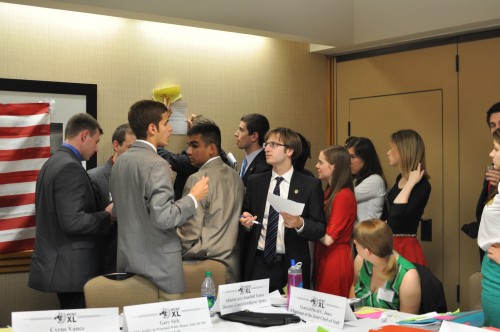
The US and Iran are about to go to war and it becomes chaotic as delegates rush to finish their directives for military action
The International Criminal Court had the Trial of Gaddafi and Al-Senusi as their cases.
The Meltdown: Naoto Kan’s Japanese Cabinet focused on many contemporary crises and issues facing Japan including the damage done by earthquakes to Japan’s energy sources.
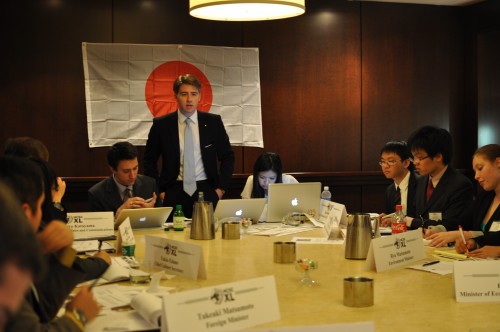
Naoto Kan’s Japanese Cabinet chair Taylor Wettach provides the committee with some direction after the latest earthquake crisis
NCSC has been simulating a Chinese Politburo committee in the past three years. This year’s simulation is the Special Meeting of the Chinese Politburo in 2017. The council dealt with a variety of issues including a major crisis involving Taiwanese independence.
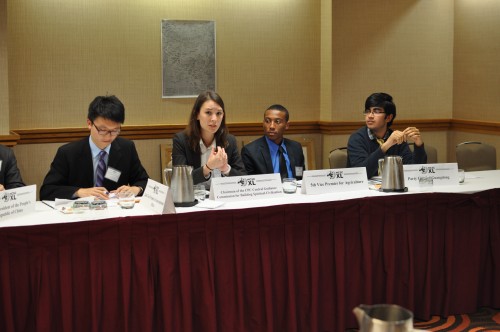
The Chairman of the CPC Central Guidance Commission for Building Spiritual Civilization (Harvard University) shows her concern with an idea in the Chinese Politburo 2017

The Minister of State Security (Boston University) is at the center of attention during unmoderated caucus in the Special Meeting of the Chinese Politburo 2017
North Atlantic Treaty Organization (NATO) 2015
Executive Committee of the Communist International 1922
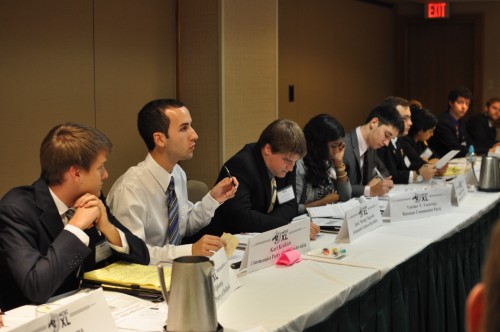
Another delegate speaks during moderated caucus in the Exec. Comm. of the Communist International 1922
Chilean Senate 1970
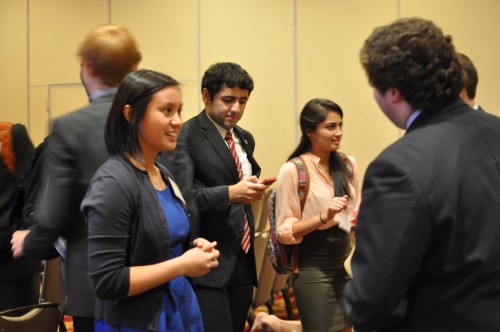
Delegates in the Chilean Senate 1970 network after a session. Networking is an important part of college MUN.
The Ad Hoc Summit of the European Central Bank dealt with the European financial crisis
News Corp Board of Directors, July 2011
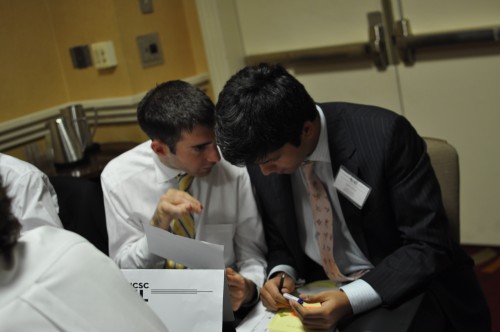
Chase Carey (Emory University) and Joel Klein (Harvard University) discuss a deal in the News Corp Board of Directors
ZANU-PF Steering Committee
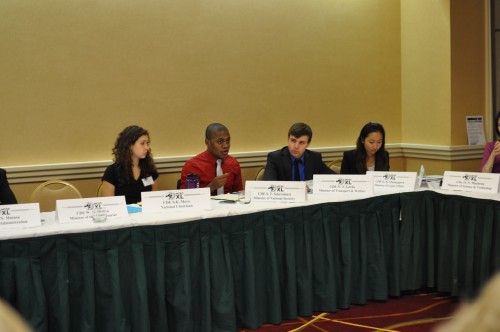
A delegate discusses the pros and cons of releasing information to the public in the ZANU-PF Steering Committee
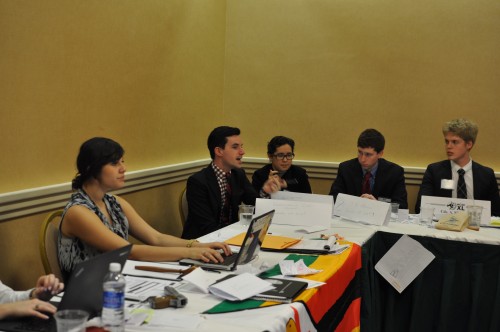
A leader of a breakaway opposition group (Columbia University) tries to establish power for their party in the ZANU-PF Steering Committee
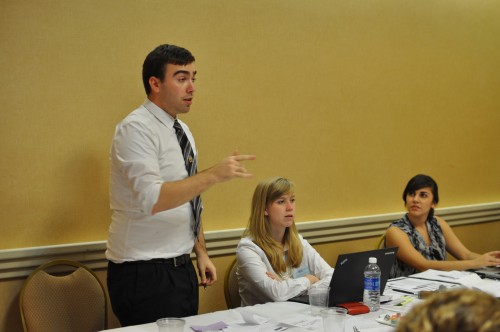
A crisis staffer reminds delegates in the ZANU-PF Steering Committee how international observers will view their actions
Likud Party Caucus
The delegates in the Likud Party Caucus had by far the most passionate speeches of any of the committees as they had major disagreements on the issues of Palestinian citizenship and land swaps. Some delegates chose to engage in rhetoric and reminded others that they are the “Chosen Ones.”
Summit of the Resistance: Europe Underground 1942
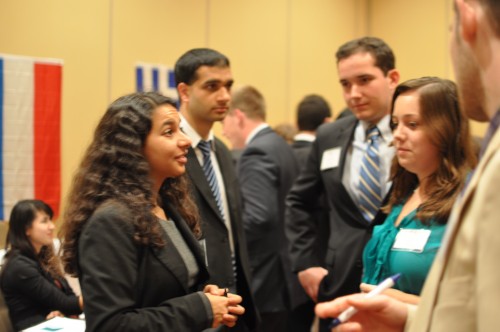
Summit of the Resistance: Europe Underground 1942 chair Zohreen Badruddin meets the delegates in her committee during unmoderated caucus
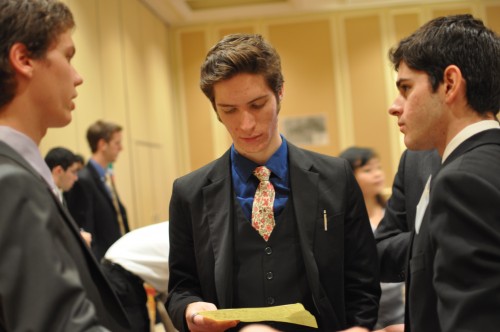
Chester Wesley (University of Virginia) considers a proposal in the Summit of the Resistance: Europe Underground 1942
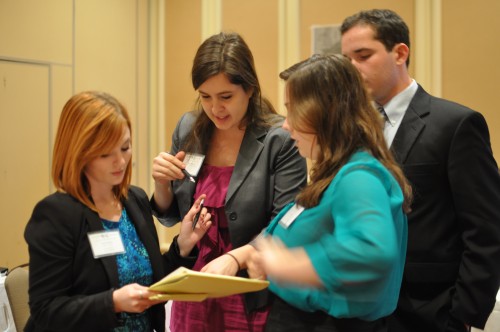
Delegates provide feedback to a draft resolution sponsored by Boris Mladic (Boston University) in the Summit of the Resistance: Europe Underground 1942
Other photos of delegates and staff in action
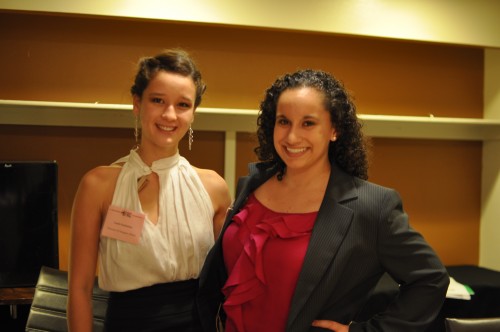
Director of Delegate Affairs Sarah Pemberton and Executive Director Jessica Lawson smile for the camera
Delegation Awards:
Best Large Delegation: University of Pennsylvania
Outstanding Large Delegation: Harvard University
Best Small Delegation: United States Military Academy at West Point
Outstanding Small Delegation: Boston University
Congrats to all the delegates and staff for a successful weekend! And hope everyone got home safely from the hurricane!
**
I personally enjoyed seeing everyone again during this conference. I thought it was also very rewarding to see former high school delegates who I had met from different parts of the world now doing Model UN at the college level. Although this may be my only visit to the college circuit this year, I hope to see you all again soon.

